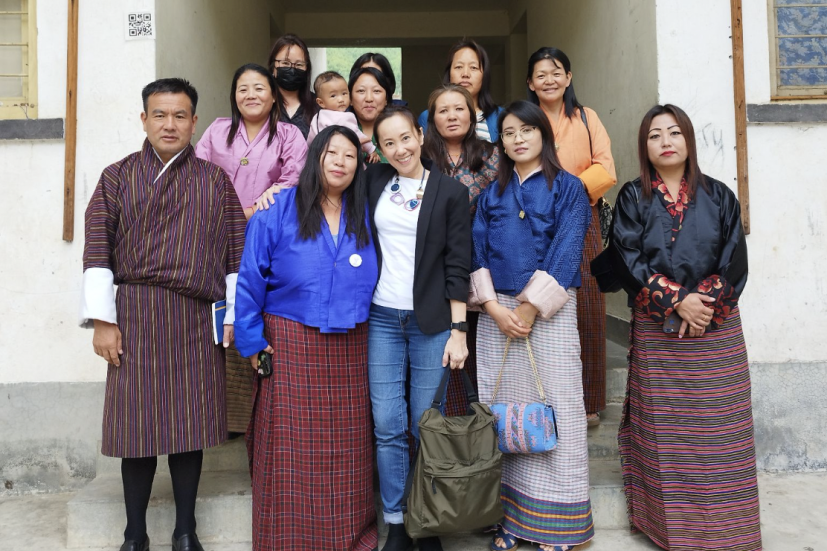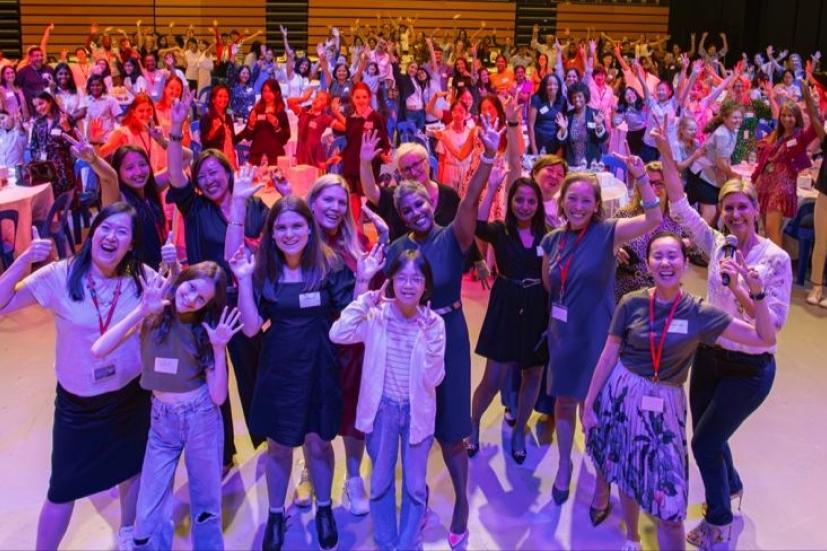Empowering Women Towards an Inclusive Digital Economy
It was noon. I just completed a cyber safety awareness talk to employees at a housing corporation in Bhutan. Dechen Wangdi, one of the managers, took me to a cosy little restaurant. Over lunch, we continued our discussion on the rapid pace of digitalisation, the increasing sophistication of cyber threats, and the impact on our communities. Later, he will be my translator at my next cyber safety session, this time to a group of housewives in a grassroots housing community.
Speaking to these Bhutanese housewives, I learnt that while they all own handphones, their digital knowledge is rudimentary. A few have attempted running micro-businesses from home, operated through their mobile devices. Unfortunately, some were tricked by scams, ending their entrepreneurial ambitions.

In a UNICEF paper on gender and innovation, women are reportedly 25% less likely than men to know how to use technology. Contributing factors include a lack of access to devices, language barriers, and sociocultural norms discouraging women from being digitally savvy. This is more evident in developing markets where culturally, men are seen as the breadwinners of the family. Due to the lack of resources, men are prioritised for education opportunities and office jobs, preventing women from gaining access to technology, digital knowledge and digital devices.
As the sophistication of online harms continues to grow, the lack of digital savviness among women has detrimental consequences. Recent research shows women lose two times more money than men in romance scams. Women and girls are also targeted for technology-facilitated sexual violence (TFSV). This includes being sexually objectified, groomed for sexual exploitations, tricked by job scams and traded into illegal prostitution. They also face threats of online stalking and revenge porn. Sociocultural norms limiting female participation in digital advancement must change. This change needs to start young. An 11-year-old girl told me about being the only girl in her school’s robotics club. She shared that she had been teased and pressured to quit by the other boys. However, she received guidance on handling such biases respectfully and thoughtfully through Lean In Girls, a leadership programme for girls. To foster equality and to combat continued biased behaviour, schools need programmes that empower girls to address biases and educate boys to recognise unconscious bias and negative stereotyping.

Besides relying on schools and government agencies, what can society do to drive digital inclusion and elevate women as equal citizens in the digital ecosystem? Large corporations could donate funds, equipment, or time to digitally inclusive programmes. For example, when YWCA’s Empowering Mums initiative in Singapore needed laptops for a digital literacy programme, a multi-national bank stepped up and donated the hardware, and individuals volunteered their time as trainers.

Never discount what each of us can contribute as individuals. In 2021, my mother fell victim to a lucky draw scam. This experience left me feeling so outraged that it motivated me to leave my corporate job and establish White Byte, a company that provides education on scam prevention. There is clearly a demand for cyber safety and digital literacy education, especially among women and mothers. In these workshops, women learn from and with women facing similar situations. They have a safe space to share their personal stories, offer support and empower each other to be confident in an increasingly digitalised economy.
Come April, I’ll visit Bhutan again. This time, I would like to spread the spirit of digital equality to school students. Hopefully, they will build and be a part of a future digital economy that is truly inclusive for women.





